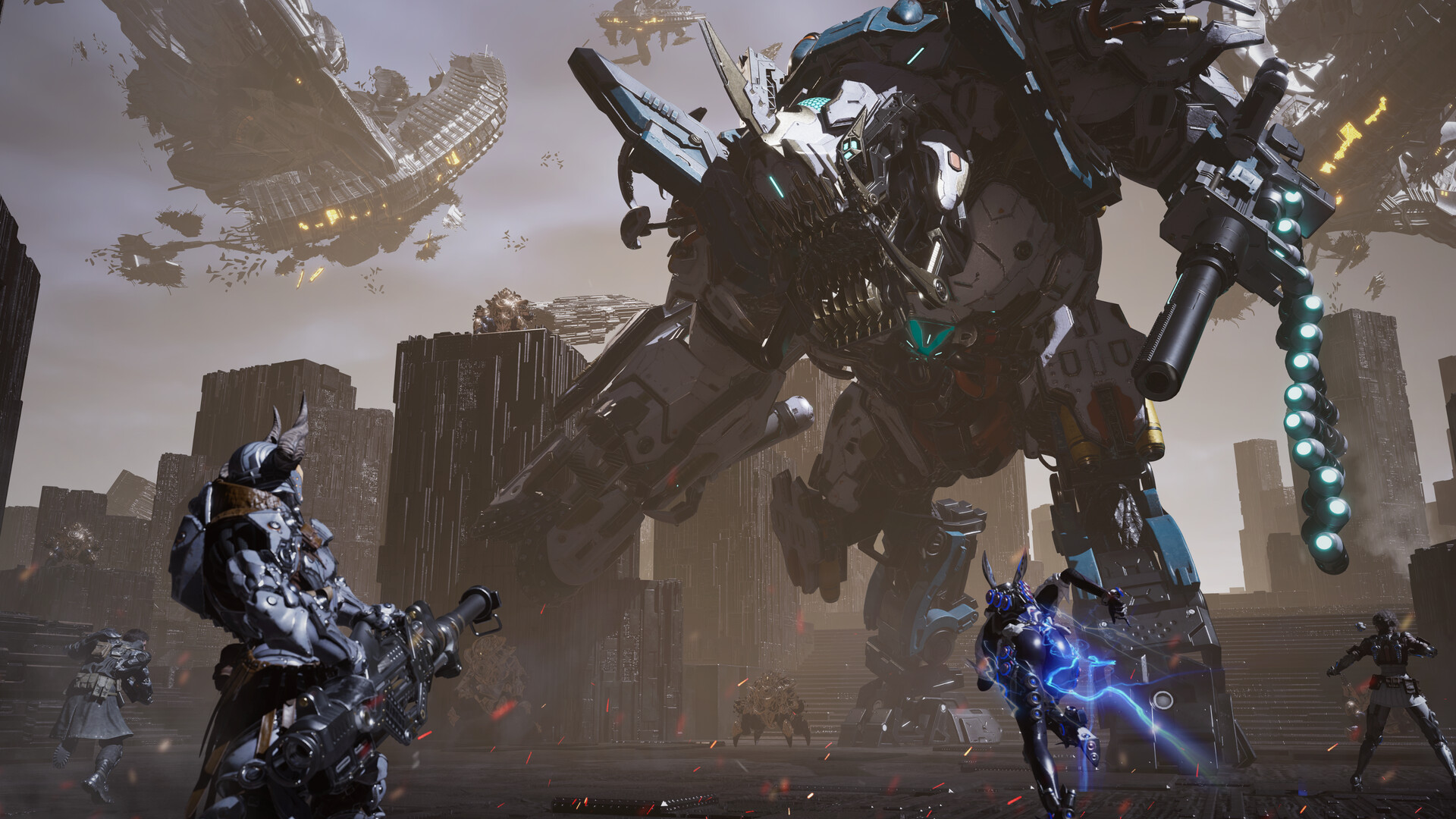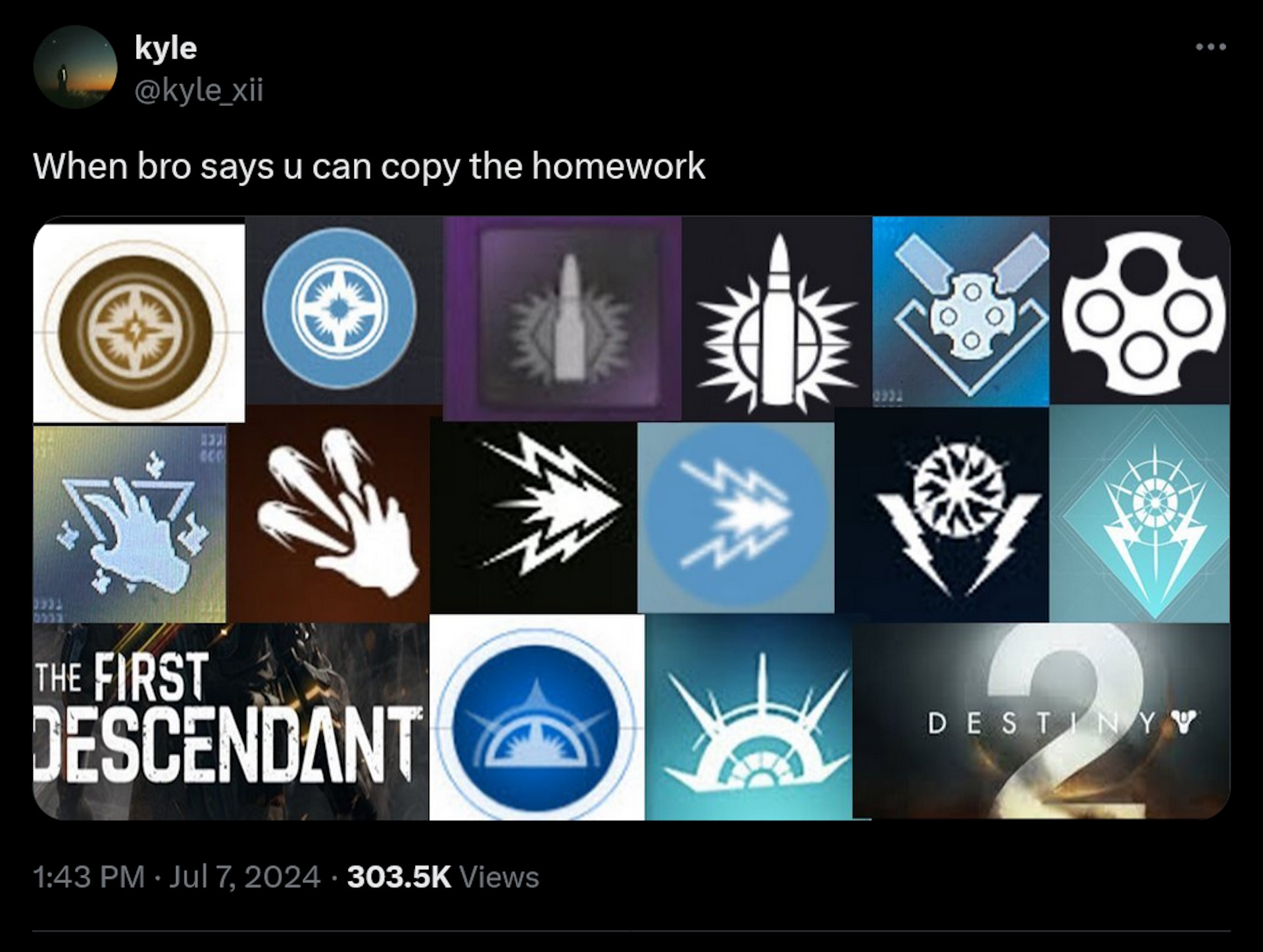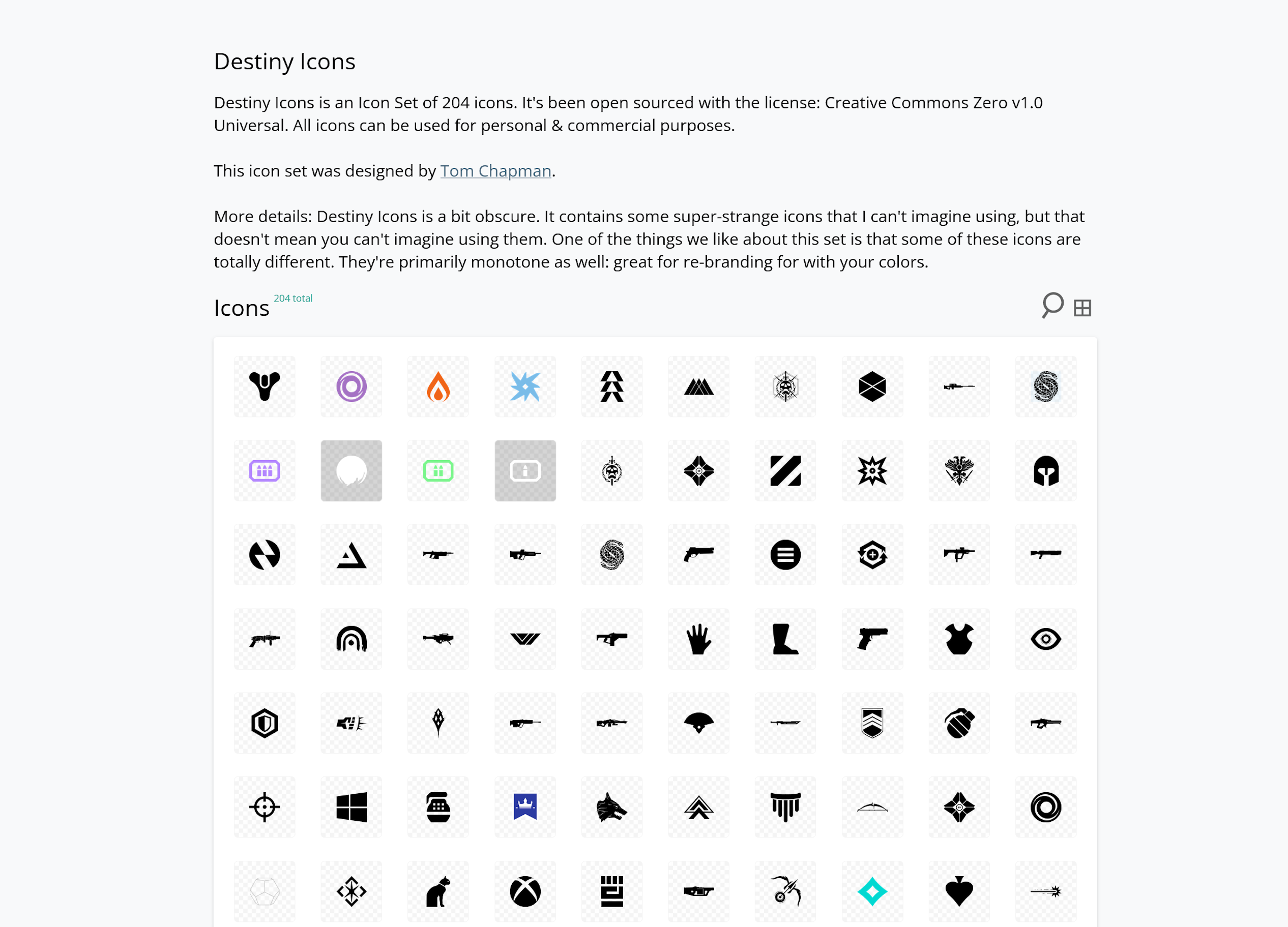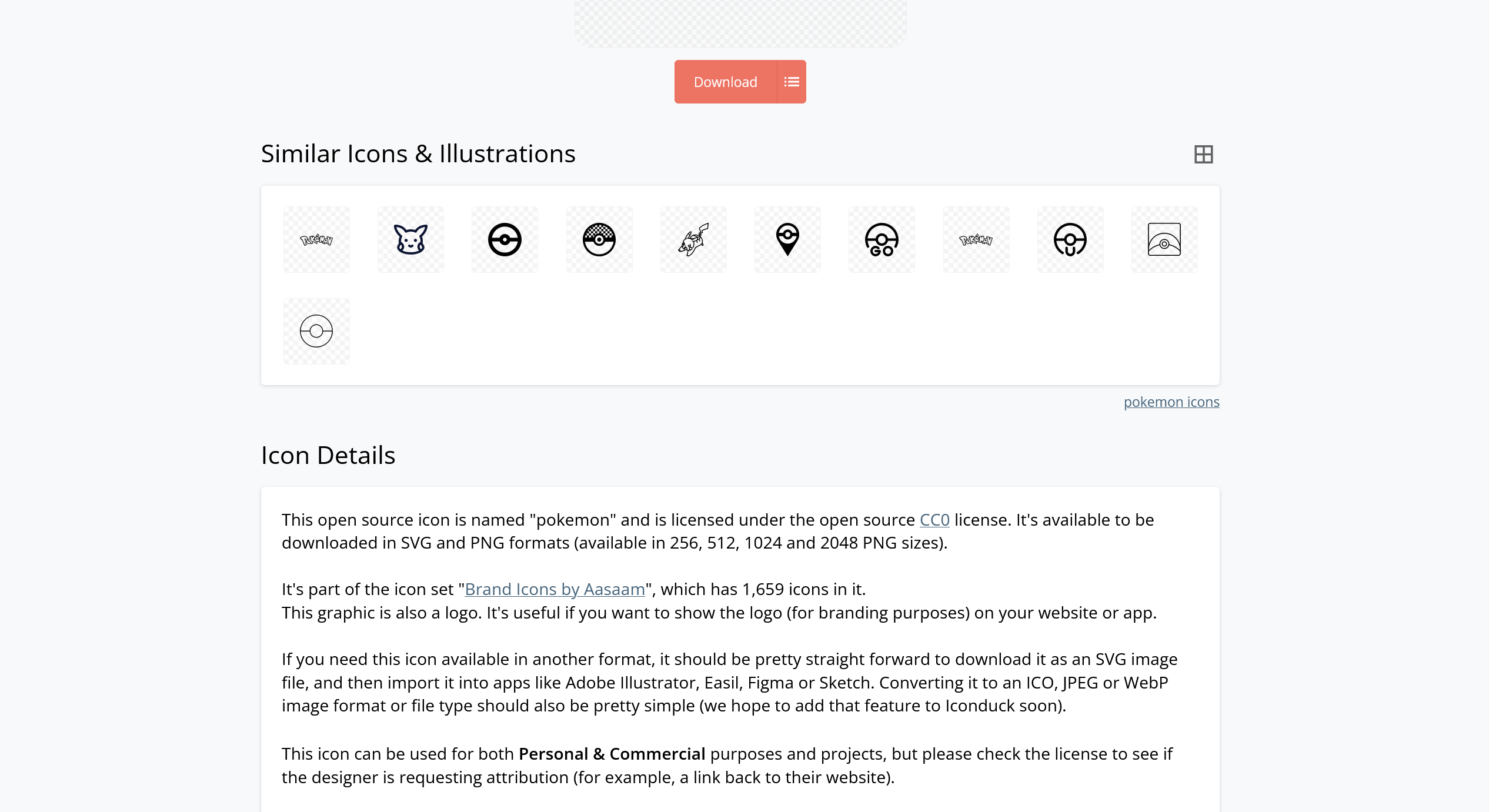The First Descendant contains icons from Destiny 2, and one theory about how they got there is a reminder that not everything on the internet is what it purports to be
The similarities in the icons are impossible to overlook. The real question is, how did this happen?

It came to light recently that an awful lot of icons in The First Descendant look an awful lot like icons in Destiny 2—far more than anyone could reasonably attribute to coincidence. Some have been adjusted to a small degree, others are just about straight-up copies, and it all seemed very strange: Would Nexon, a major player in the games business, really just steal assets from genre competitor Bungie, as if nobody would notice?
Shortly after the similarities were noticed, an explanation was put forward: Destiny 2 and The First Descendant both appear to make use of free-to-use icons sourced from a site called Iconduck. That seemed to make sense at first blush, but it raised an obvious follow-up question: Why the hell would Bungie use free artwork? We're not talking about a one-person indie working on their first project, after all: Destiny 2 is one of the biggest shooters on the planet.

That question led me down the real rabbit hole. Iconduck does indeed host a pile of "free open source icons and illustrations"—nearly 274,000 of them, according to its website—which can be used "for personal and commercial purposes," but many of them appear to be stolen from other companies or games.
The Destiny icons collection, for instance, includes 204 icons which are offered as open source under a Creative Commons license. The set includes everything from the Destiny logo and class icons to faction logos, weapon icons, and even the Xbox and Microsoft Windows logos. It also carries a completely baffling set description calling Destiny icons "a bit obscure," which is not a word I would use to describe the game Sony paid $3.6 billion to get.

Other offerings on Iconduck include various Pokémon icons, which the site says "can be used on your website, branding and designs," for "both personal and commercial purposes and projects."

I'm not a copyright lawyer, but I'm pretty sure Pikachu cannot be used for commercial purposes not approved by The Pokémon Company. It's also very clearly in violation of Bungie's terms: Bungie does allow the use of Destiny data and game content for non-commercial use—things like interactive Destiny 2 maps or item managers—but "you don't own our stuff, so you can't sell it, use it to sell other things, or give other people permission to use it."
Yet that's what Iconduck is doing. Like the Pokemon collection, the Destiny icon repository states that "all icons can be used for personal and commercial purposes."
Keep up to date with the most important stories and the best deals, as picked by the PC Gamer team.
Tom Chapman, the maker of the Bray.tech websites for Destiny 2, is credited as the designer of the Destiny icon set. But he said on Twitter that he doesn't want his work used in this way, because the actual designs aren't his at all.
"Most of the icons are ripped from the font files created by Bungie and its designers," Chapman tweeted. "Most of the remainder are designed by Bungie and recreated by me or whoever contributed them to that repo. I don't want @iamiconduck to use my work like this."
I've come to hate open source. Most of the icons are ripped from the font files created by Bungie and its designers. Most of the remainder are designed by Bungie and recreated by me or whoever contributed them to that repo. I don't want @iamiconduck to use my work like this.July 8, 2024
The question now is whether Nexon snagged some of these Destiny icons from Iconduck with the belief that it had permission to use them, since the site claims they are free for commercial use, or if they wound up in The First Descendant some other way.
Whatever the answer, it only leads to more questions. How did absolutely no one at Nexon not recognize a single one of these icons? How did Nexon's legal team not vet these icons thoroughly the moment someone in the art department said, "Hey, it's cool, they're free?" And getting back to what started all of this: Why would Nexon use free artwork? It's not like it lacks the resources to make its own icons.
The particulars of this story remain unclear for now, but for developers who do rely on free and open source resources, it is perhaps a useful reminder that not everything on the internet is what it says it is.
I've reached out to Bungie, Nexon, and Iconduck for comment and will update if I receive a reply.

Andy has been gaming on PCs from the very beginning, starting as a youngster with text adventures and primitive action games on a cassette-based TRS80. From there he graduated to the glory days of Sierra Online adventures and Microprose sims, ran a local BBS, learned how to build PCs, and developed a longstanding love of RPGs, immersive sims, and shooters. He began writing videogame news in 2007 for The Escapist and somehow managed to avoid getting fired until 2014, when he joined the storied ranks of PC Gamer. He covers all aspects of the industry, from new game announcements and patch notes to legal disputes, Twitch beefs, esports, and Henry Cavill. Lots of Henry Cavill.

